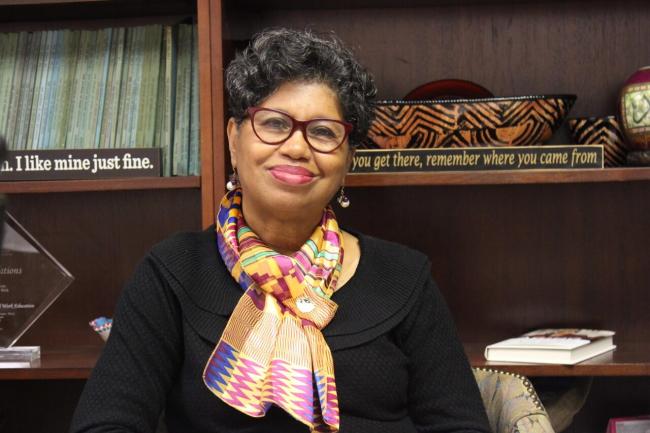Over 80 percent of modern-day social work practitioners are women, according to many sources, and the field itself was founded primarily by women. So it’s also fitting that March is not only Women’s History Month, but also Social Work Month.
Sandra Crewe (PhD ’97), dean of the Howard University School of Social Work, has devoted so much of her life to the field. Many of the women she thinks about during this month are pioneers in social work – Inabel Burns Lindsay, the first dean of the School of Social Work and the first female academic dean at Howard, and other pioneering social workers.
The struggles of social workers to which Social Work Month seeks to call attention are the same struggles that women experience across the board.
“Women have had to fight for equality and equity, not just for yourself, but for others,” Crewe says. “Women’s history is like the social work profession – we are often marginalized and not valued for the work we do.”
One of the primary issues Crewe mentions is pay equity. The misconception of social work as a profession without unique skill sets, combined with the historical fact that it has been an occupation predominated by women who were not the primary income earners of their families, have resulted in “pay inequities,” according to Crewe.
“Most people do not understand the full range of what social workers do. They really don’t see it as a legitimate profession,” Crewe says. “But they understand it better when their loved one is in hospice.”
Despite her expertise in caregiving, aging, ethnogerontology (the study of aging populations in relation to their race) and welfare reform, Crewe says that her skill set is vastly different than that of a clinical social worker. She considers herself to be a more of a macro social worker, someone who focuses more on administration and leadership.
Women’s history is like the social work profession – we are often marginalized and not valued for the work we do.”
While the social work profession is predominately female, leadership in social work can skew more male than the general workforce. Academic Beverly McPhail has said that “social work is more correctly described as a female majority, male-dominated profession.”
Crewe attributes her success in the field to different aspects of her upbringing.
“I grew up in a family with three girls, one son, and a dad and a mom. But my dad was always open to what women could accomplish,” Crewe says. Her mother was also a driver for a Black woman, who was likely a teacher for The Jeanes Foundation, also known as the Negro Rural School Fund or Jeanes Fund, who served as superintendent for Black schools.
Crewe also credits her first teachers – Ms. Washington, Ms. Canada and Ms. Easley – for imbuing her with a sense of self-confidence and the belief in the limitless potential of Black women. “My first through seventh grade education was with three Black women. I adored them and admired them,” Crewe says. “So, no male teacher until I went to high school. And I did okay with that. I never learned that women had weaknesses that other people would ascribe to them. Just never.”
Crewe found herself called to pursue a path in social work during high school, when she and her sister were some of the few Black students who desegregated a predominately white school in Virginia. Racism was rampant in the school, among the students as well as the teachers. Crewe says that the Black students were routinely called pejorative names and were even given different tests and assignments than their white classmates in the hopes that they would struggle academically and be forced to return to the all-Black school.
While Crewe managed to succeed academically, she empathized with her Black classmates who struggled. One day, she was talking with her peers and commiserating with them about how difficult their studies were, even though she was not as challenged by them as they seemed to be. Her father told her, instead of going along with their narrative, rather than affirming their negative beliefs, he encouraged her to say, “How can I help you?”
In addition to looking back into the past during Women’s History Month and Social Work Month, Crewe also feels inspired to look with admiration at the students she’s surrounded by every day, individuals whom she considers to be trailblazers in their own right.
“When I see the young women come into this building into social work, and they were balancing school, family and working, the struggle is real,” Crewe says. “They are dedicating this time to make life better for someone else.”





